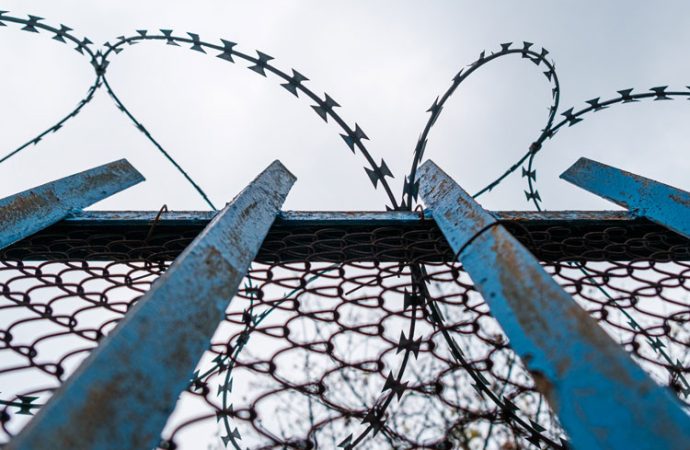Author Recent Posts Rabia Anwaar Latest posts by Rabia Anwaar (see all) Reignited Pak-Afghan Tensions: What Could Be the Way Forward? – November 4, 2025 Geopolitics and the Future of Gaza: Who Are the Real Stakeholders? – October 15, 2025 Iran’s Nuclear Ambitions and Israel’s Aggressive Dominance in the Region – July 15, 2025
ndian Supreme Court granted constitutional validation to PM Modi’s decision of stripping Jammu and Kashmir off of its special autonomous status and declared it as an integral part of Indian territory. This judgement holds paramount significance for both arch rivals, India and Pakistan and brings about a shift in the geographical, political, legal, socio-economic and demographic landscape. The decision to revoke Article 370 and 35A was a political and legal move taken on August 5th 2019 while the constitutional validation is just an affirmation to it. It was challenged in Indian Supreme Court, faced serious reactions domestically and at international front. However, the recent decision manifests that court’s role have been primarily focused on the constitutionality of the Modi government’s actions.
The state of Jammu and Kashmir has been fighting its war of freedom since the creation of India and Pakistan but the already appalling situation got worse since 5th August 2019. Following the abrogation of Article 370, the region bifurcated into two federal unions; Jammu Kashmir and Ladakh. With the Indian Supreme Court’s upholding of abrogating Article 370 and 35A, Jammu and Kashmir became an integral part of India, denying all of its special rights of independent, constitution, flag, law-making, etc. Several experts believe that Modi has taken one step towards his idea of ‘Akhandbharat’ but to what extent will he be able to control it remains a question.
With geographical change, the next move decided by Modi government is demographic shift. Article 370 allowed Jammu Kashmir to retain control over defense, communication and foreign policy. Article 35A ensured that only Kashmir’s permanent residents could own property. The special reserved rights enshrined in Article 35A, are now constitutionally denied by the Union of India. The Kashmiris are now deprived off their special property rights within the territorial boundaries of Kashmir leading towards a demographic shift in Kahmir. This can probably turn the majority Kashmiri population into minority- with demographic change follows a cultural changes-a fear that is unspoken.
The decision is followed by the announcement of general elections by September 2024, a phase which have been missed and out of sight for Kashmiris for past few decades. This decision is taken without taken into consideration the aspirations of Kashmiri people; undermines the principle of fairness and justice. Kashmiris are under severe suppression; lost their freedom, political and basic rights, some even lost their right to live and almost all are going through serious human sufferings the severity of which cannot be put into words.
Kashmir has always been a bilateral issue between Pakistan and India thus, cannot be solved at any multilateral forum. Ever since India and Pakistan signed the Shimla agreement, New Delhi has refused to accept a role for the United Nations or any third party in Kashmir, asserting that it is solely a bilateral matter. If there exists any solution to Kashmir problem, it could only be through bilateral efforts, dialogue and diplomacy- no other way around.
In international relations, the relative power of state guides whether the action will be taken against the opponent state would be unilateral or bilateral. After the Supreme Court of India validated the dilution of Jammu and Kashmir’s constitutional autonomy, China reiterated its position that the issue had to be resolved as per UN Security Council resolutions and that there has to be a dialogue between the parties concerned. India had the option of taking a unilateral action against Pakistan related disputed border but it cannot be mistaken in case of Aksai Chin. India is already countering China on multiple fronts strategically in Indo-Pacific as well as in economy, digitization, tech and technological innovations. Thus, India cannot afford to make a misleading step at Aksai chin.
The international community has expressed but mild concern about the recent situation in Jammu and Kashmir, as in international relations, it is the interests of states that matter. The unilateral and undemocratic changes governing Jammu and Kashmir, unabated human rights violations, denial of basic facilities and land-grabbing due to militarization are all in violation of international law, UN resolutions, India’s own constitutional framework and India’s commitment to Kashmiris. India can only feel encouraged to continue its violent policy because of the lack of international moral leadership.
- Reignited Pak-Afghan Tensions: What Could Be the Way Forward? - November 4, 2025
- Geopolitics and the Future of Gaza: Who Are the Real Stakeholders? - October 15, 2025
- Iran’s Nuclear Ambitions and Israel’s Aggressive Dominance in the Region - July 15, 2025





















Leave a Comment
Your email address will not be published. Required fields are marked with *